Our very occasionally roaming reporter Don Hearn brings you his memories of the sights and sounds and more from the 2010 Super Series Finals in Taipei.
By Don Hearn, Badzine Correspondent. Photos: Badmintonphoto and Don Hearn
When I first decided to travel to Taipei for the Super Series Finals, I was hopeful but just a little concerned. After all, I can’t afford to get out of the country very often and this event had been minus so many big names for its first two editions that certain disciplines had fields that looked more like a Grand Prix tournament field.
But I love the sport and I enjoy watching all of the players up and down the ranking scale so I resolved to go. Besides, it makes no sense to risk contributing to a vicious circle, refusing to cover it unless the top players are there. I mean, for all I know, players might have been thinking it would only be worth playing if it were sure of getting the media coverage befitting a Super Series Final.
In the end, of course, the BWF stepped in and put major pressure on the top Super Series finishers to attend and we ended up with a field stronger than any had hoped for. All the same, I did not get the impression that the players resented having been pressured to attend. The mood was that this really was a Super Series Final. Apart from the 3rd and 4th-ranked women’s singles players – who also just happened to be the 3rd and 4th Chinese and therefore ineligible – and the three mighty Chinese men’s singles players who hadn’t played enough to qualify, the players who made it to Taipei were the best 8 in each discipline and the competition was top-notch.
Small for its size
Nor did it seem like a World Championship knockoff, either. We had the extra prize money, the preliminary group play and the concentration of top-8 talent to give it a very different feel, competition-wise.
It was also a collection of very compact contingents, with only China in double digits and them only barely. The hall was set up with two courts so this really did justice to the level of competition that was so high on every single day and no spectacle had to share the limelight with 3 or 4 other matches, as sometimes happens in an average Super Series event.
The welcome party was a very relaxed affair. It was my first time to be invited to such an event. Perfectly logical – and at the same time not something that had occurred to me beforehand – was the fact that wine was available only on request, as all but a few dozen people present were high performance athletes about to engage in a major competition.
The Korean athletes started to take the spotlight somewhat early, as the designated entertainer invited Lee Yong Dae on stage to dance with her. Also, for her rendition of 4 Non-blondes’ ‘What’s up?’, she appointed a guest vocalist from each table in turn, the least inhibited of these being the ever-smiling Ko Sung Hyun, who belted out the chorus in a bold baritone.
Taipei 101 – Introduction to Taipei (i.e. not the tower)
One thing I shared with the Super Series Finals was that, for both of us, this was our first visit to Taipei. I had had fair warning of the foul January weather but was pleasantly surprised to find manageable spring temperatures and very little actual rainfall, for all the cloud cover. The overcast sky, along with the busy badminton schedule, did mean that I never even glimpsed the massive tower that briefly held the title of world’s tallest building before the Burj Khalifa rewrote the categories.
Among the first things I noticed about Taiwan was, not surprisingly, the sign held up by tournament volunteers to get my attention at the Taoyuan International Airport arrivals level. The sign said ‘Don Hearn – MEDIA’ and, immediately underneath, ‘Lee Yong Dae – KOREA’. I don’t know which one was more amusing: that Lee was being welcomed to the exclusion of his coach and team-mates or that I was being given a kind of equivalence to one of badminton’s true poster-boys.
This treatment was no isolated incident, either. Rather, it was indicative of an overall attention the tournament organizers gave to making the media’s job very easy. It made sense, of course, to pave the way for effective coverage of a tournament that was first-rate in terms of talent and prize money but it sure is nice to be both appreciated and catered to.
Taipei itself was a very welcoming place. Not that travelling to cover badminton tournaments is any way to see the world. After all, with matches from noon until 10PM every day, plus setup time and post-match writing, it is difficult even finding time to shop, let alone sightsee. Living in another East Asian country that has taken its own path to a distinctive brand of modernity and found its own way to retain the traditional, I felt a wonderful mix of the familiar and the novel.
I got more of Taipei modernity than I bargained for when, returning from the welcome dinner, I had the brilliant idea of foregoing Taipei’s cheap, efficient bus system in favour of the 20-minute walk from the subway to my hotel near the venue. I spent those 20 minutes teetering on a shoulder-width sidewalk, ducking face-height flags while jerking my arms back from the endless stream of what seemed like most of Taipei’s considerable scooter population.
Still, I got to enjoy the urban landscape on my pleasantly uneventful daily walk down the winding, narrow alleys to the Hsinchuang Stadium, which is in a less-travelled part of Greater Taipei.
It had been a while since I’d played the role of the inept foreigner, linguistically speaking, but I turned up phrasebook-less in Taipei and turned in the performance of a lifetime. This combined with my dietary preferences to produce some odd compromises. I found a fish restaurant close to the venue, where the language barrier was breached by a fish display table. This allowed for a point-and-hope approach that rewarded me with the most delectable black-bean sauce stewed mackerel, so delicious that I ate at the same place nearly every night.
It’s not how you say it, it’s what you say
I had some minor embarrassment in one press conference when I accidentally asked Lee Yong Dae whether his heel had healed (it’s a little complicated but trust me, there is a reason why it’s possible to confuse ‘heel’ and ‘elbow’ in Korean). Lee and Jung had a little chuckle about the mysterious heel injury but they, like all the players in Taipei, were very good about making time to talk to the press. The gracious Zhao Yunlei was even kind enough to field a few questions about her mixed performance before getting back to the job of preparing for her women’s doubles final.
I like to think we return the favour, when we can. It felt good to hear from one player, who had not attended the draw ceremony, that she had seen her grouping on Badzine. It had apparently been Twittered to her as soon as we published, which ended up being several hours before it was available through official channels.
One thing that was nice about being at a tournament in Chinese Taipei was that a plurality of the players’ names – which are, as always, Chinese – were pronounced correctly, tones and all. There is nothing surprising in this, of course, but when the pitches and the nuanced vowels elude so many of us outside of China, it is a relief to hear announcers giving us the names correctly and effortlessly, even when announcing the matches in English.
Now if we could only do the same service to the Thai players, whose names are even more famously difficult to pronounce. Even those of us who can navigate the Romanized spellings of names like Teerawiwatana or Buranaprasertsuk typically have no idea what any of the six tones in those names should sound like. The poor Thai players must hear at least as many mispronunciations of their names as there are tournaments in the calendar. The mixed doubles runner-up Sudket Prapakamol was once introduced as Prapalakoo but I can only imagine that this is likely the tip of a year-round iceberg for Sudket and so many of his compatriots.
Long shots and not so long
The biggest longshot of the week was the chance given to world #66 Maja Tvrdy of Slovenia. Of course, she would have had to pretend her name was Petya Nedelcheva but the judging from the draw boards (pictured), she could have pulled it off.
Korea’s Bae Youn Joo did well again in Taipei but I am getting used to that now. It just so happens that my first Badzine assignment, the 2006 World Junior Championships in Incheon, was also Bae’s first international tournament. She came out of nowhere to reach the semi-finals then reached her first Super Series final the first time I covered an event outside of Korea. So her runner-up finish on my first trip to the Super Series Finals was really just following the pattern. One can only hope that she will continue to be successful more often than I will manage to report on site.
It was a little sad that Chinese Taipei, after doing such a great job in putting on the event, could not see a local pair reach the finals. Fang and Lee could not find the stuff of their terrific run in the summer and Cheng Wen Hsing and Chien Yu Chin missed out on the proverbial cigar in their very close semi-final as well.
Sad too that the local English-language paper that was delivered to my hotel room could not spare a square centimetre the entire week to mention the Super Series Finals, despite daily reports on some obscure tennis event halfway around the world as well as the obligatory EPL and even American college football(!), presumably to appeal to the local expatriate community.
The local Chinese-language press seemed to give ample attention, especially to Cheng and Chien. We can always hope for more international journalists, however, along with even higher prize…well, I’ll refrain from launching into the familiar badminton wish list.
It has been over four years since I covered my first tournament for Badzine, just before the dawn of the Super Series age. Many of the faces have remained the same, of course, but the experience is changing considerably. Many of the winners and near winners from those ’06 World Juniors – Wang Yihan, Lee Yong Dae, Saina Nehwal, Wang Xiaoli, Ma Jin – have come into their own now and so has the Super Series and so, I hope, have I.
![Memories of…the 2010 Super Series Finals Our very occasionally roaming reporter Don Hearn brings you his memories of the sights and sounds and more from the 2010 Super Series Finals in Taipei. By Don Hearn, Badzine […]](https://www.badzine.net/wp-content/uploads/Newsflash-thumbnail.png)
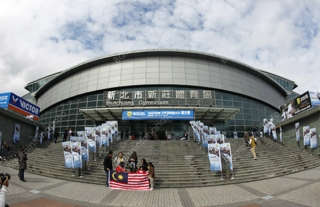
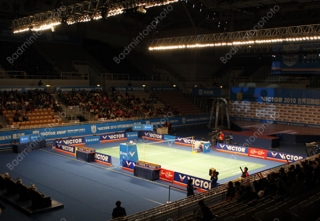
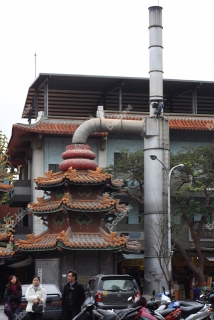
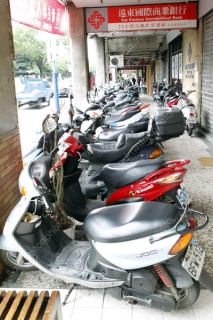
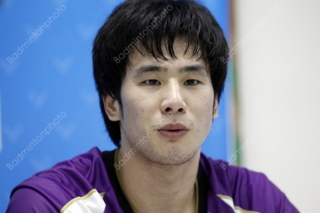
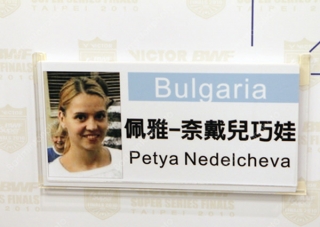
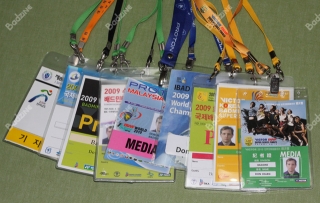

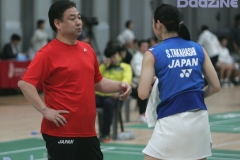
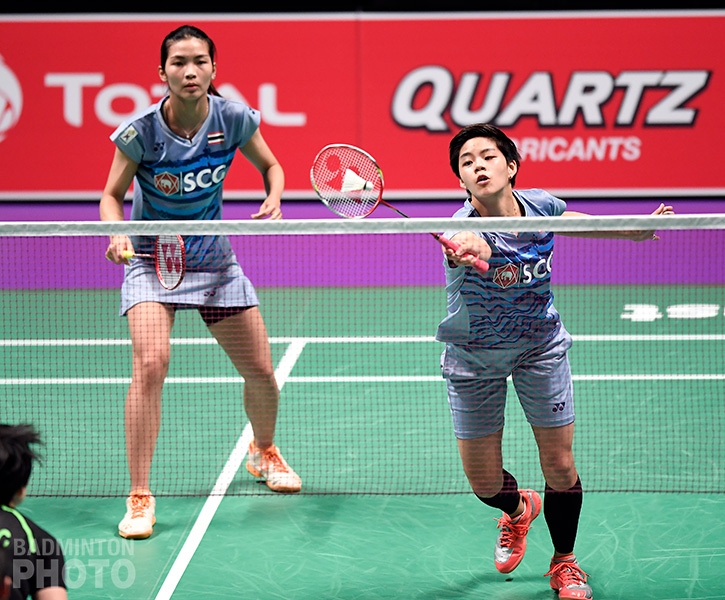
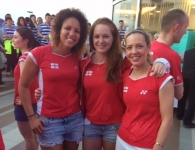
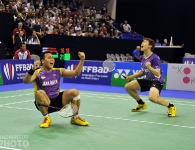
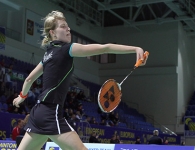
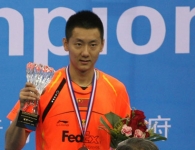
Leave a Reply